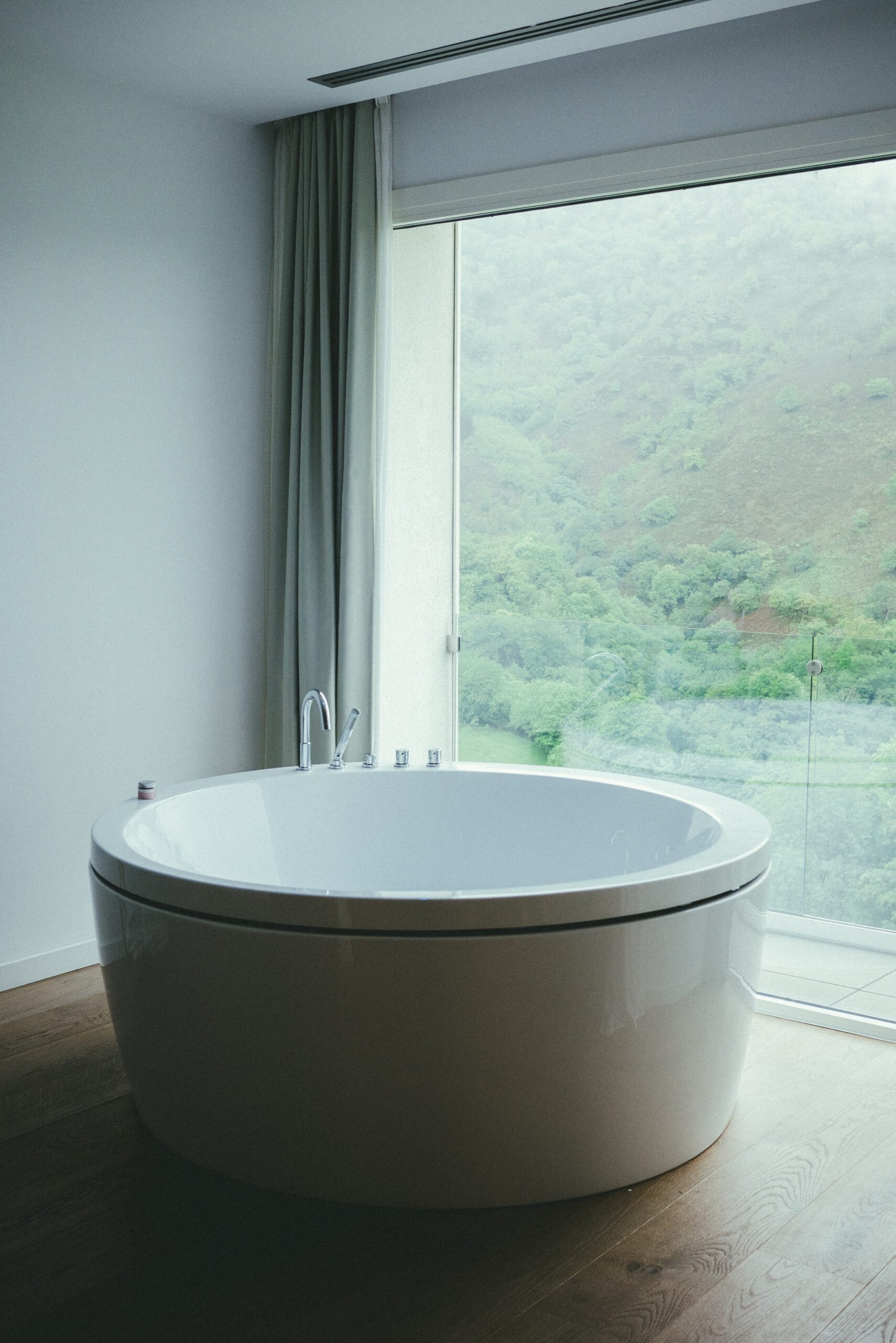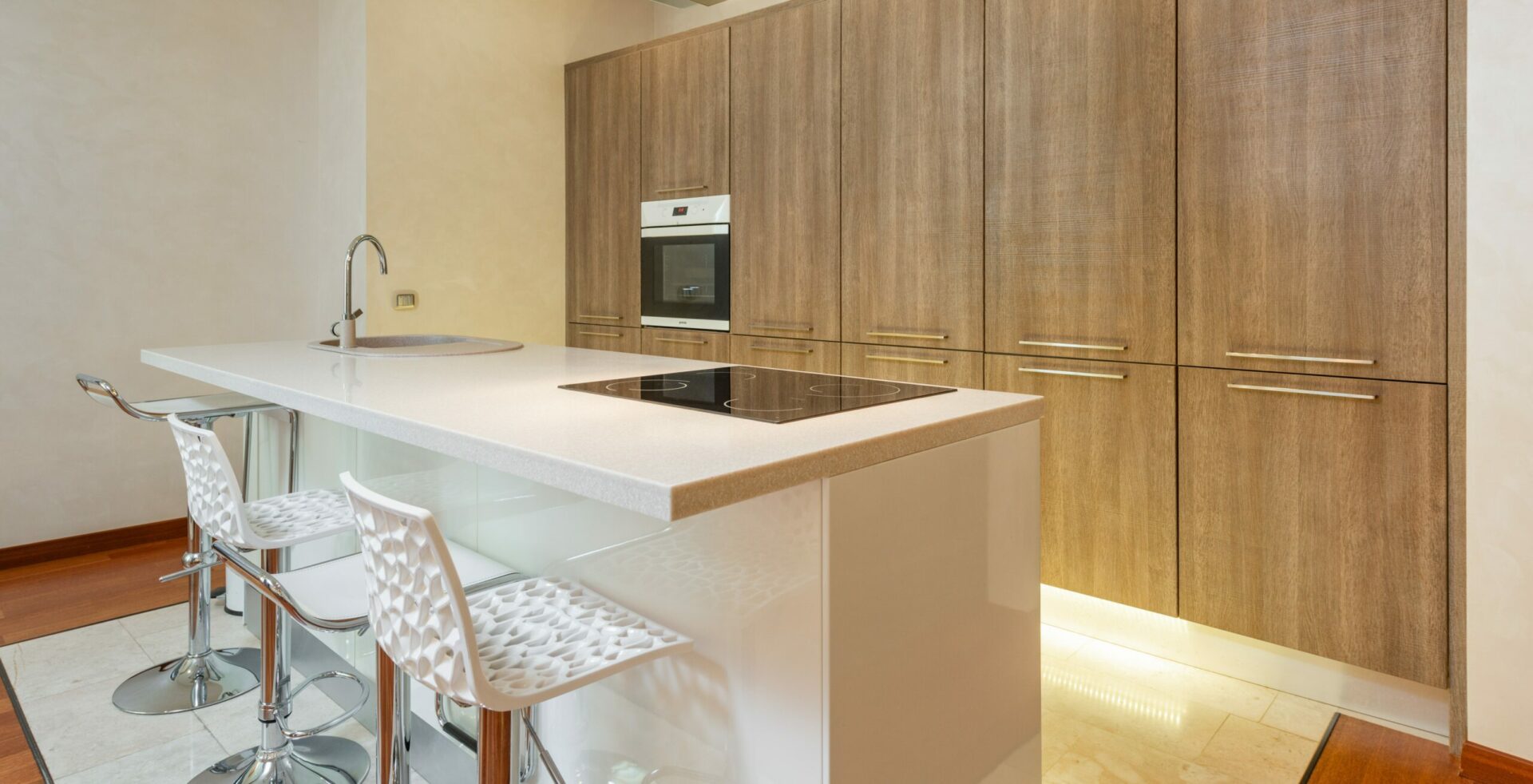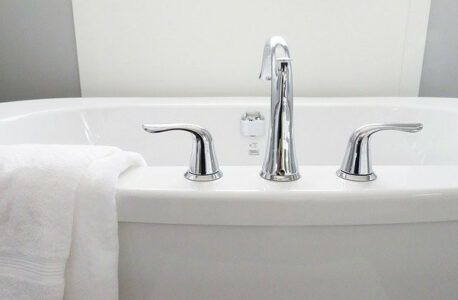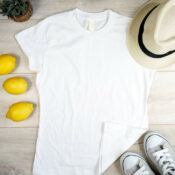Anyone who’s ever used a bathtub or shower has likely come into contact with some rust. Rust is formed when iron particles mix with oxygen that is  found in water. Iron is not a natural component of the chemical makeup of water, it is commonly found in the rivers, lakes, and well water that serve as the sources for the water in your home. This iron is pumped in from the outside and sits in your pipes, building up over time and clogging your plumbing as well as leaving ugly rust and water stains. Rusty pipes can also taint your water, leading to orange-brown water that pours out of your sink and shower. Without hard work or preventative action, those rust particles will anchor to your bathtub, shower, and toilet bowl making them very hard to remove and ruining your bathroom look. The question is how to remove rust stains in a bathtub?
found in water. Iron is not a natural component of the chemical makeup of water, it is commonly found in the rivers, lakes, and well water that serve as the sources for the water in your home. This iron is pumped in from the outside and sits in your pipes, building up over time and clogging your plumbing as well as leaving ugly rust and water stains. Rusty pipes can also taint your water, leading to orange-brown water that pours out of your sink and shower. Without hard work or preventative action, those rust particles will anchor to your bathtub, shower, and toilet bowl making them very hard to remove and ruining your bathroom look. The question is how to remove rust stains in a bathtub?
Say Goodbye to Rust Stains with Our Time-Tested Technique.
One of the worst offenders of rust stains is in showers The rusty red and orange streaks left behind by iron and calcium deposits are highly visible and ugly, they can also prove extremely difficult to remove. Regular cleaning products might trigger a chemical reaction which only further stains the minerals into your toilet bowl, so it’s important to know exactly how to clean your shower for an effective and lasting treatment that will remove every trace of the rust you left behind.
Method 1.
Materials Needed
- Lemon
- Salt
- Toothbrush/Microfiber cloth
Step 1. Pour lemon juice into the bathtub over all visible rust stains and let sit for around 15 minutes.
Step 2. Pour salt over the lemon juice, Once the salt is applied, let sit for 2-3 hours.
Step 3. Once it has set, use an old toothbrush or microfiber cloth to scrubbing the paste around until it covers all the stains thoroughly before finally flushing to rinse. Repeat as needed until all stains are gone.
Method 2.
Materials Needed
- Baking soda
- Microfiber cloth
- Toothbrush
- White vinegar
- Toilet/scrub brush
Step 1. Close your bathtub drain, pour about 1/4 cup of baking soda into bottom of the bathtub,
Step 2. Add about 1/2 cup of white vinegar to the baking soda. Stir the mixture until it forms a thick paste, use a toothbrush to spread the paste on all the areas of your tub that have rust stains.
Step 3. Use a toilet brush or a scrub brush to scrub directly on the rust stains and then let the paste sit overnight.
Step 4. The next morning gently scrub the paste away with a microfiber cloth, rinse your bathtub with water.
What’s So Bad About Rust?
Rust is a danger for a number of reasons. Primarily, rust can erode metal over time, meaning that you could develop an unexpected water leak or broken pipe and flood out your home or bathroom in minutes if you don’t catch it in time. It can also cause electrical problems if you have leaky faucets and water puddles, creating an electrocution hazard.
Rust also poses a health hazard: tetanus-causing bacteria Clostridium tetani is present in the irregular surfaces of rust that are more likely to harbor the dangerous bacteria. A sudden encounter with a rusty nail or another piece of sharp metal can allow the bacteria to enter your bloodstream, as well as consistent exposure to rust flakes or stains. Rust is a serious issue for homeowners that can cause just a few of these problems:
Clothes are stained red-orange or don’t smell clean. Rusting pipes leading to your washing machine can lead to red-orange water that stains clothing and leaves dirt and rust reside on your seemingly-clean clothes. It can also stain the interior of your washer.
Where Can Rust Affect Us?
Skin and hair issues.
Washing your hair in rusted water can cause build-up that makes it tangle easily, look dull and feel rough, and dry out easily, irritating sensitive skin and making it more likely to abrasions that could contract tetanus from rust flakes in your water and shower.
Rust stains.
The red-orange color characteristic of iron particles interacts with water oxygen to coat every surface it comes in contact with. The resulting stain taints any surface it comes into contact with and can also leave behind an unpleasant smell.
Cleaning feels next to impossible.
The iron deposits left behind after rusted water is run are a real challenge to remove unless you know what you’re doing. Iron, calcium, and magnesium are elements that will continually have chemical reactions unless you take action to remove them from your water.
Plumbing and appliance damage.
Plated plumbing fixtures stained with rust are often beyond repair because the chemicals literally eat through the metal. You may see rust build-up around drains, faucets, and on shower heads, as well as in common appliances like dishwashers, coffeemakers, washers, and more. These iron build-ups can damage the rubber washers that seal water fixtures as well, creating leaks that can cause even more damage.
Solving those problems
Can vastly improve your family’s quality of life and get things back to normal again. No matter your situation, solving your rust issues and removing the stains left behind is a great way to get your water and your home back on track.
What’s the Solution to Rust?
There are a few different ways residents can choose to tackle the problems caused by the rust in their homes.
The first is to invest in coated pipes that are resistant to rust build-up. Plumbers specialize in recommending rust-free supplies that will work for your specific home, so you’ll definitely want to contact one for advice on how to redo your home plumbing.
Another good solution is investing in water-conditioning or filtering. Especially if you’re planning on living in your current home or property for a long time, installing filtering or softening hardware is one of the best decisions you can make. Say goodbye to bad-smelling water, constantly clogged pipes, and itchy, dry skin with softening equipment that gets installed on top of pre-existing plumbing. Water softeners remove problematic and dangerous rust particles at the source, so you won’t have to worry about calcium, iron, and magnesium building up in your home again.








